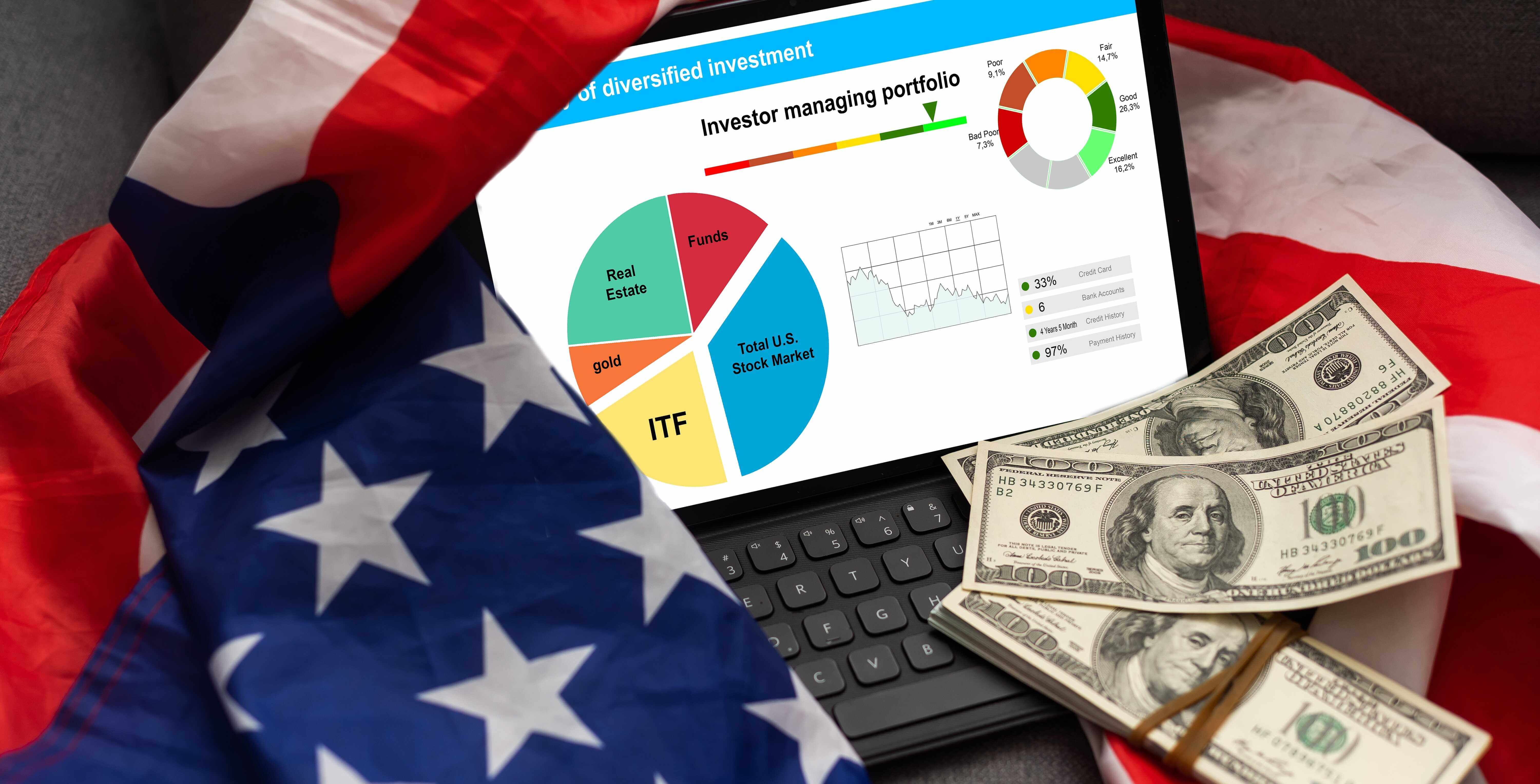The Walt Disney Co. Just Conducted A Master Class In Strategic Asset Management

It's official. The Walt Disney Company (NYSE: DIS) intends to become 70% owner of streaming television outfit (and cable alternative) FuboTV (NYSE: FUBO). Disney's similar Hulu+Live service will, in turn, become part of FuboTV, although (for the time being anyway) the two brands will continue operating separately. Most notably, the deal also means Fubo will drop its efforts to prevent Walt Disney from co-launching a sports-centric streaming service in partnership with Fox and Warner Bros. Discovery -- perhaps the ultimate goal of the negotiation.
Fubo will remain a publicly traded company, to be clear -- Disney will simply be its biggest shareholder, buying yet-to-be-issued stock within the next year and a half.
Where to invest $1,000 right now? Our analyst team just revealed what they believe are the 10 best stocks to buy right now. See the 10 stocks »
On the surface, it seems like a win-win. And in many regards, it is. Walt Disney can proceed with the debut of its sports-minded Venu platform, while FuboTV shareholders can bask in the 250% gain their stock experienced immediately after the announcement was made Monday morning. Some are saying the development may well have saved the tiny company since it also calls for much-needed funding from The Walt Disney Company.
The deal arguably favors Disney far more than it favors Fubo, though, for reasons that are being obscured by all the post-announcement noise.
The Walt Disney Company isn't buying -- it's setting the stage for a future sale
Although it was cheered by most, the agreement is actually a bit unusual in light of Disney's other option. That's the outright acquisition of Fubo, which, at the time the agreement was announced, sported a market cap of less than $500 million. Even a 100% premium to last Friday's closing price would have still been affordable for deep-pocketed Disney, which has $6 billion worth of liquidity sitting on its balance sheet right now.
Disney is also no stranger to the cable television business; its Hulu+Live platform very similarly delivers live network broadcasts and other cable TV content to 4.6 million subscribers versus FuboTV's more modest headcount of 1.6 million cable-alternative customers.
However, what if The Walt Disney Company doesn't want to be in the cable television business any longer? What if the media giant would rather just focus on content creation and selling this content directly to consumers, bypassing the conventional cable industry?
That seems to be what Disney wants since that's exactly what this deal does.
That's not to suggest Walt Disney offloaded a lemon on Fubo at what will end up being a negligible cost. Hulu+Live is earnings before interest, taxes, depreciation, and amortization (EBITDA)-profitable, and the combination of this business with FuboTV's similar cable alternative is expected to become even more profitable, operating under one umbrella. Perhaps Fubo will be able to do more with the well-recognized Hulu brand than Walt Disney ever managed to.
The cable business isn't exactly high-growth, though. Indeed, streaming alternatives to cable TV are increasingly running into the same headwinds as conventional cable. These, of course, are rising carriage fees in an environment where consumers are enjoying an increasing number of live-streaming options, and now, the prospect of streaming cable-like television being regulated like ordinary cable TV.
In many ways, the Walt Disney Company arguably just abandoned a sinking ship. Underscoring its disinterest in the business is the fact that -- despite being a majority owner -- Disney is allowing FuboTV's current management team to continue running the company.
To the extent that it still holds a stake in cable-like player FuboTV, it can afford to shed its 70% stake in the company at a loss at any point in the future. Even after the stock's recent run-up, Fubo's market cap remains less than $2 billion.
Live sports will soon be available in all flavors, sizes, colors, and price points
The irony? Walt Disney itself may be the chief reason matters are about to go from bad to worse for the cable television business.
It's not the only reason consumers still pay sky-high monthly bills for cable TV, but according to numbers from CableTV.com, access to live sports is the top reason people are still paying for cable. Familiarity with how their cable TV service works is a close second reason. (The two reasons alone account for more than half of consumers' willingness to stick with cable.)
Change is afoot on both fronts, however. Amazon Prime is now the exclusive carrier of Thursday nights' NFL matchups, for instance. Even Netflix is venturing into this territory with the near-exclusive airing of two Christmas day games.
ESPN remains the powerhouse of the sports TV business, of course. The sports-focused cable channel remains a staple of all major cable television plans, offering programming that isn't available anywhere else. Even that's about to change, though. The now-impending launch of Venu will include all the live sports broadcasts from Warner's TNT and TBS, Fox's Fox Sports and FS1, and perhaps most notably, everything ESPN offers, including its flagship cable channel's live broadcast.
If sports is indeed the chief reason people have yet to cut the cord, a wave of cord-cutting is building.
This wave will probably briefly reaccelerate later this year, too, by the way, when Disney plans to launch a stand-alone streaming version of ESPN that will even partially compete with Venu.
The Walt Disney Company no longer needs to care about the cable television industry's ever-growing challenges. It's now able to effectively monetize all of its big-ticket content in several other ways outside of cable's reach.
Focus on the bigger, longer-term picture
So, now what? Presuming Fubo's shareholders and regulators approve the deal, there's nothing that shareholders of either company can or need to do. There's a case to be made for taking action with both stocks, though.
For Walt Disney shares, the already-bullish case just became even more bullish.
Although the stock stumbled following news of the deal with FuboTV, this agreement solves a handful of near-term problems for Disney while also providing cost-effective choices further down the road. Namely, if it wants to get out of the streaming-cable business altogether, it can do so by selling the 70% stake in Fubo that it will soon be buying for little more than a song.
As for FuboTV, the stock's recent surge may be an opportunity for a profitable exit -- at least for part of any open positions.
While the agreement is more or less solidified, the one detail that's missing so far is the price at which The Walt Disney Company is going to make its future purchase of its 70% stake in Fubo. It's presumably going to reflect Fubo stock's price nearer the time the deal closes, but there's no particular contractual reason FuboTV shares are guaranteed to remain at their current lofty levels. Indeed, given that this week's knee-jerk buying only unfurled based on the premise of the deal, there's a good chance Fubo stock is poised to peel back at least a little bit in the near future.
Should you invest $1,000 in Walt Disney right now?
Before you buy stock in Walt Disney, consider this:
The Motley Fool Stock Advisor analyst team just identified what they believe are the 10 best stocks for investors to buy now… and Walt Disney wasn’t one of them. The 10 stocks that made the cut could produce monster returns in the coming years.
Consider when Nvidia made this list on April 15, 2005... if you invested $1,000 at the time of our recommendation, you’d have $832,928!*
Stock Advisor provides investors with an easy-to-follow blueprint for success, including guidance on building a portfolio, regular updates from analysts, and two new stock picks each month. The Stock Advisor service has more than quadrupled the return of S&P 500 since 2002*.
*Stock Advisor returns as of January 6, 2025
John Mackey, former CEO of Whole Foods Market, an Amazon subsidiary, is a member of The Motley Fool's board of directors. James Brumley has no position in any of the stocks mentioned. The Motley Fool has positions in and recommends Amazon, Netflix, Walt Disney, Warner Bros. Discovery, and fuboTV. The Motley Fool has a disclosure policy.


